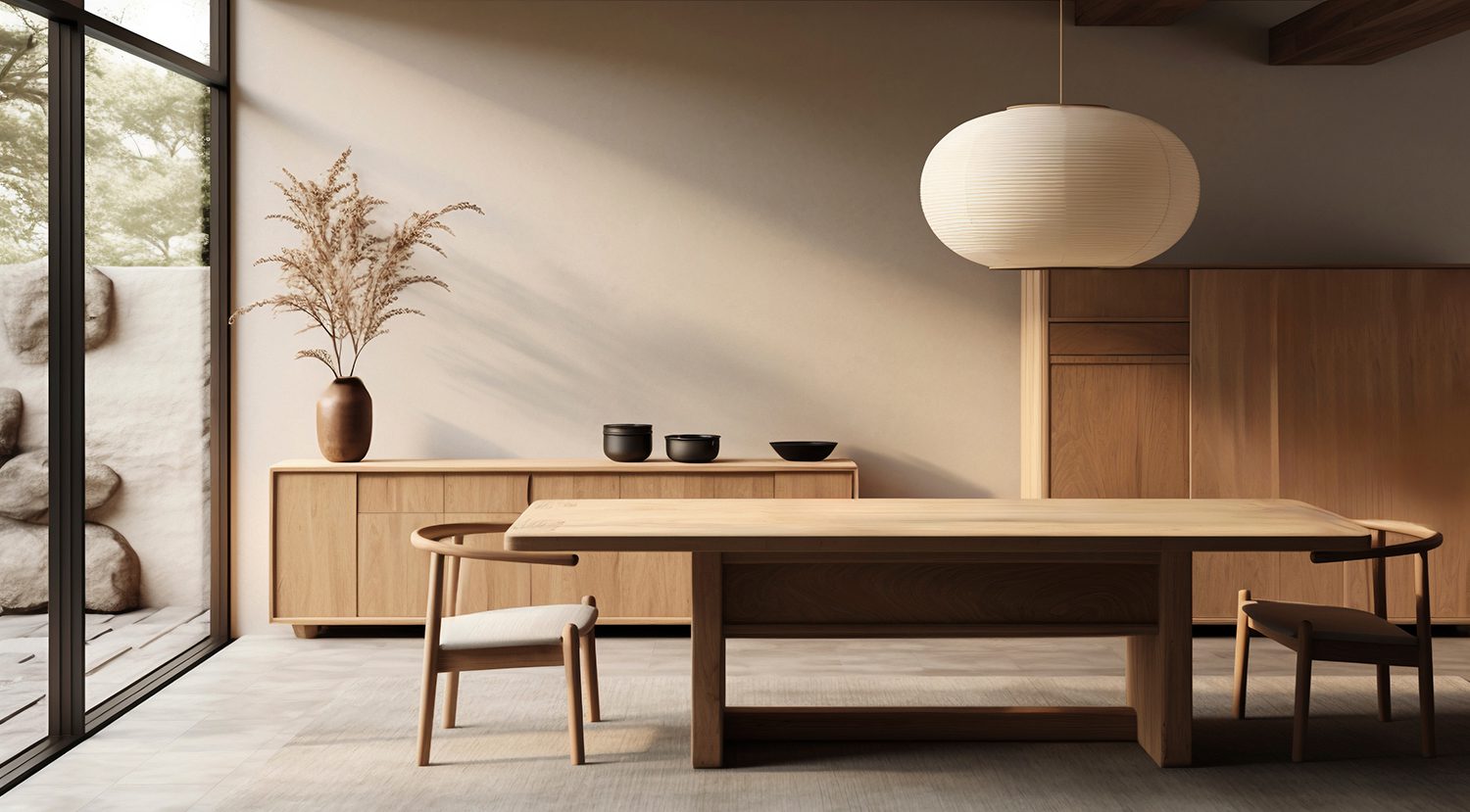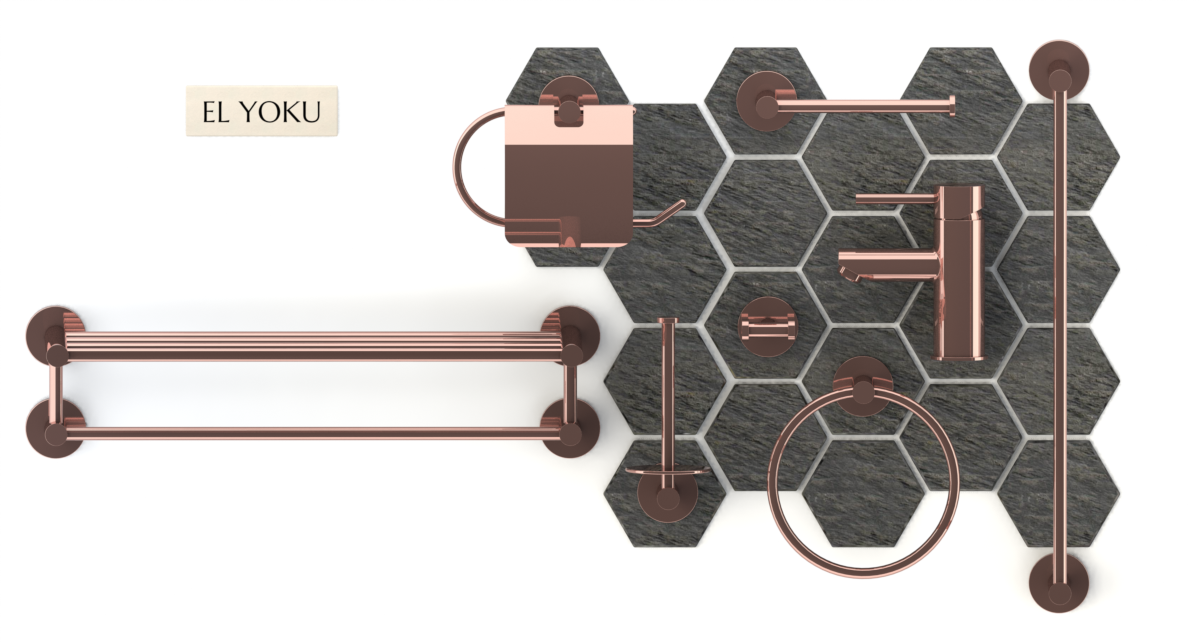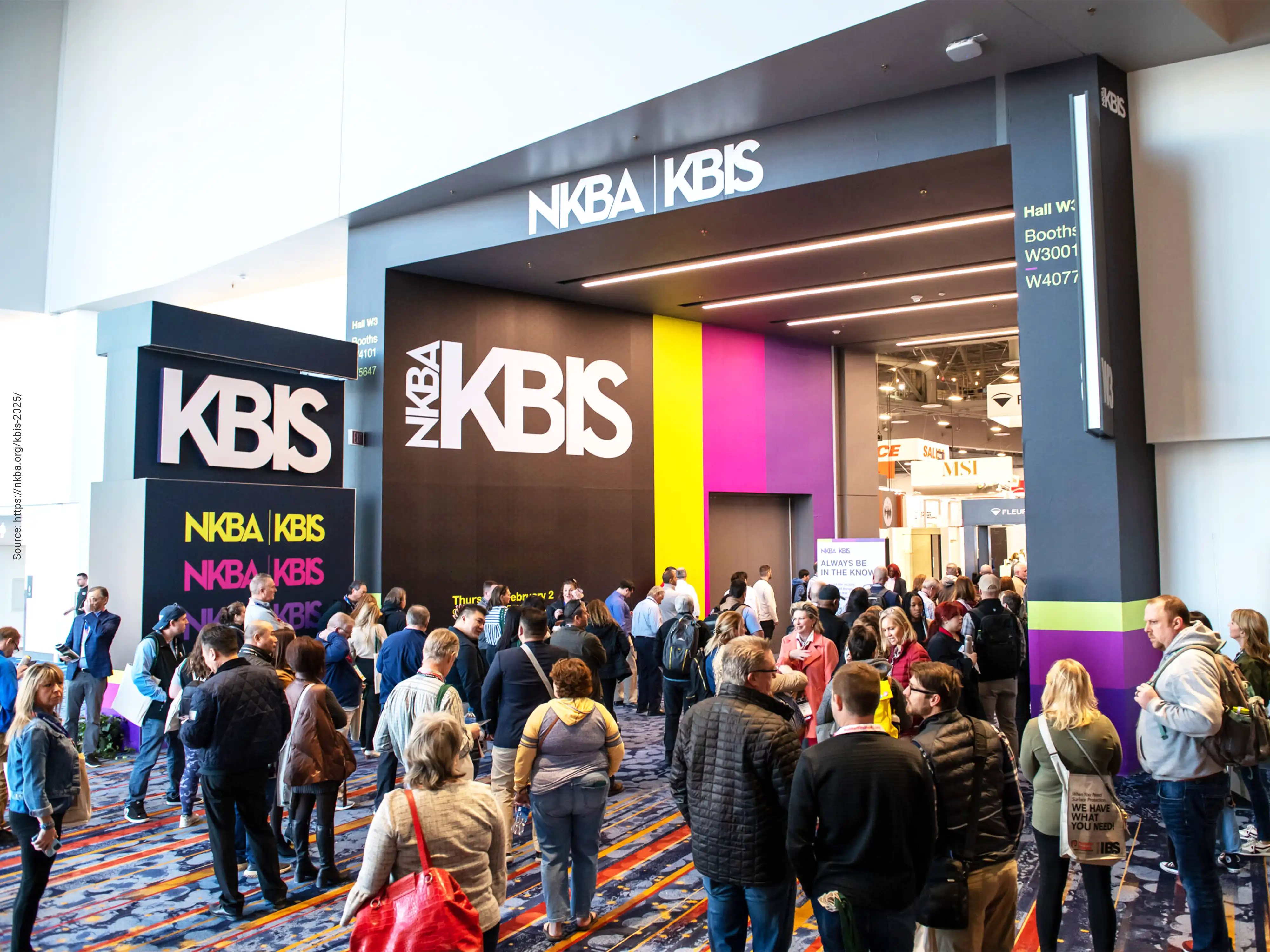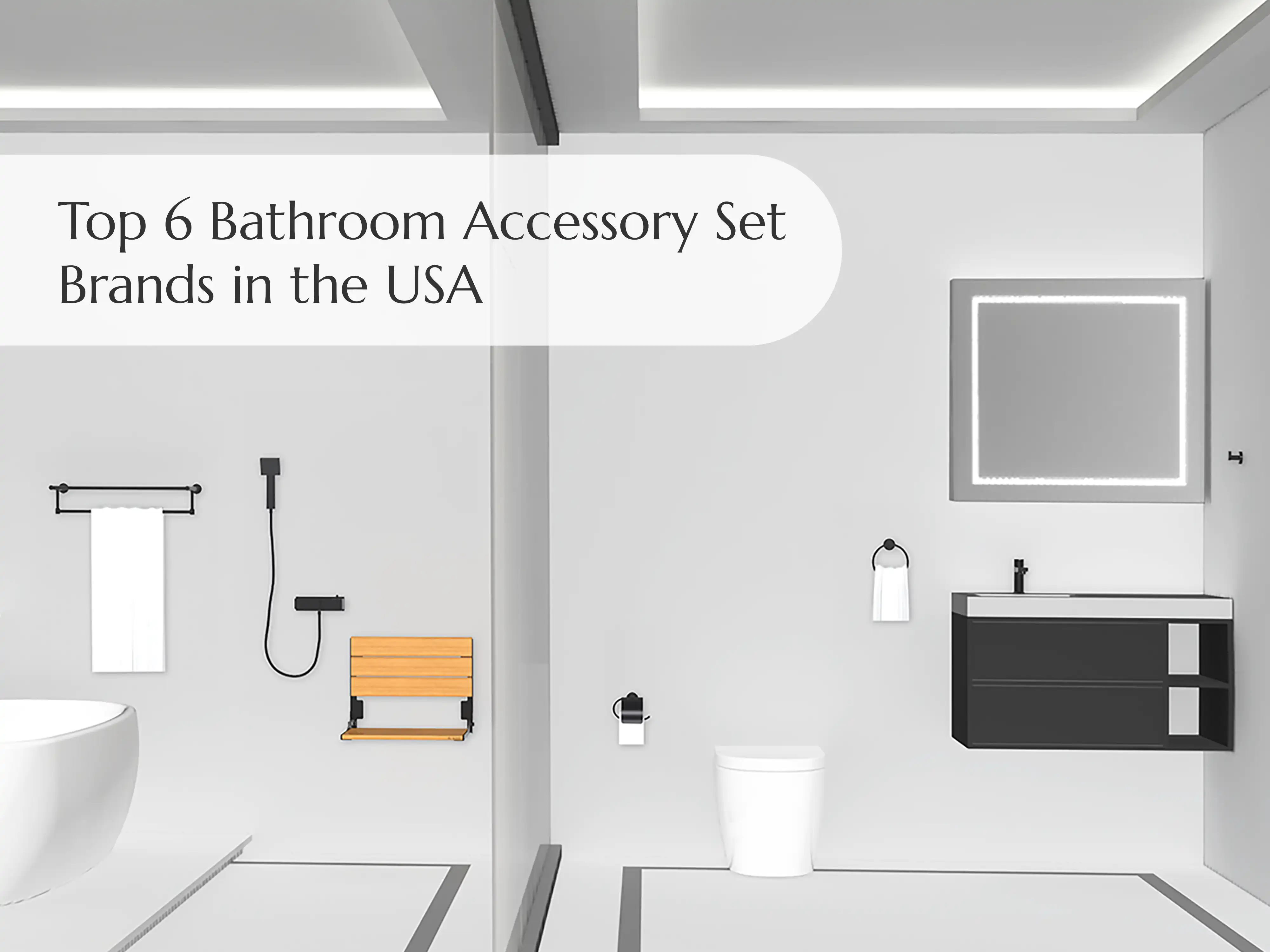
Why Architects Should Embrace Japandi Minimalism in Their Next Project
Some things are most beautiful when kept simple. Just like a soothing and Zen-looking bathroom – A Japandi bathroom! To celebrate this simple design language, invest in Japandi bathroom accessories. El Yoku, a manufacturer of premium Japandi bathroom accessories, is committed to transforming ordinary bathrooms into an elegant retreat. El Yoku’s mindful designs are deeply rooted in Japandi minimalism, which means they go beyond aesthetics to transform everyday routines into calming and relaxing experiences. Let’s understand it peacefully.
Unveiling the Essence of Japandi: Where East Meets West
El Yoku’s philosophy is inspired by Japandi—a mix of Japanese and Scandinavian design. Visualize this—the sense of calm and quiet of a traditional Japanese tearoom merging effortlessly with the simple functionality of a Scandinavian cabin. This blend is distinguished by clean lines, natural materials, and a focus on functionality to promote balance in architecture and intentionality.
The minimalist architecture home decor market is booming. Valued at approximately $137.2 billion USD in 2022, it’s projected to reach $245.6 billion USD by 2030, demonstrating a robust 7.6% annual growth rate.
Source: Grand View Research
Certainly. Here’s a table with the statistical data and their sources for easy reference:
| Statistic | Data | Source |
| Minimalist home decor market growth | Valued at $137.2 billion USD in 2022, projected to reach $245.6 billion USD by 2030, with a 7.6% annual growth rate | Grand View Research |
| Bathroom renovation popularity | 28% of homeowners renovated their bathrooms, making it the second most popular room to renovate after kitchens | 2021 Houzz & Home Study |
| Wellness features in bathroom design | 67% of designers consider wellness features as important in bathroom design | 2021 National Kitchen and Bath Association (NKBA) Design Trends report |
| Consumer willingness to pay for sustainable products | 67% of consumers are willing to pay more for sustainable products | 2021 American Society of Interior Designers (ASID) report |
| Global bathroom accessories market size | Valued at USD 18.99 billion in 2021, expected to expand at a CAGR of 10.2% from 2022 to 2030 | Grand View Research |
| Interest in Japanese design products | 65% of overseas consumers were interested in Japanese design products | 2020 Japan External Trade Organization (JETRO) survey |
Incorporating the Philosophy of Wabi-Sabi in Japandi Style
What is Wabi-Sabi Style?
Wabi-Sabi is rooted in a Japanese worldview that finds beauty in the imperfect and celebrates the natural aging of objects. Traditionally, it embraces “rustic simplicity” and appreciates the elegance found in the mundane or worn. It’s about embracing life’s imperfections and the passage of time, finding serenity in the natural cycle of growth and decay.
The Japandi Connection
Japandi interior design incorporates wabi-sabi by embracing these principles within its modern aesthetic. Here’s how:
• Minimalism with Meaning: Both wabi-sabi and Japandi prioritize minimalism, but it’s not just about reducing clutter. It’s about ensuring that each piece has a purpose and a story, favoring handcrafted items that often bear the beauty of time.
• Natural Materials: Japandi utilizes sustainable materials, often imperfect—wood with visible grain, stone with unique textures—which echo wabi-sabi’s love for the authentic and unrefined.
• Color Palette: The color scheme in Japandi often includes muted, earthy tones, which resonate with wabi-sabi’s preference for nature-inspired hues. These colors evoke a sense of calm and balance, capturing the serenity wabi-sabi espouses.
• Functional Aesthetics: Both styles appreciate functional design. Furniture and décor in Japandi interior design are not only attractive but practical, suggesting a lived-in, yet aesthetically pleasing environment.
How Do Japandi Interiors Differ from Traditional Scandinavian Designs?
Japandi interiors, a harmonious blend of Japanese and Scandinavian aesthetics, introduce a unique twist to the classic Scandinavian style. While both styles emphasize simplicity and functionality, Japandi interior design sets itself apart in several key ways:
1. Color Palette
Japandi style embraces a wider range of neutral tones but often incorporates deeper, darker colors than those typically found in traditional Scandinavian interiors.
2. Textiles and Textures
In contrast to the minimalistic texture approach of Scandinavian spaces, Japandi interiors showcase a broad variety of textiles and textures, creating a dynamic interplay of materials that adds depth and interest to any room.
3. Craftsmanship
Both styles value intentional design and craftsmanship, yet Japandi interiors often highlight handcrafted elements more prominently, celebrating cultural depth and the principles of balance in architecture.
Transforming Bathrooms: From Utilitarian Spaces to Sanctuaries
When we think about bathrooms, we think of them as purely functional spaces. But El Yoku is here to change that. Bathrooms are one of the most essential spaces, and they should be a place where one rejuvenates and relaxes. Our Japandi-inspired bathroom accessories incarnate this philosophy to create a luxurious spa-like atmosphere in your comfort’s home.
Visualize yourself waking up every morning to experience a routine by the peace of a Japandi bathroom design. Each element – From the polished contours of a shower seat to the sleek design of grab bars, works beautifully together to form a space that feels elegant and calming.
Functionality Redefined: Where Every Detail Serves a Purpose
Minimalism strips away all the excess and presents the beauty of functionality. El Yoku’s designs incorporate this principle and ensure every curve and line have a purpose to serve. Our shower seats provide not only a place to rest but also a sculptural element that enhances the bathroom’s look and feel. Our grab bars are essential for accessibility. They are designed with sleek and elegant finishes,
Minimalism, at its core, celebrates the beauty of functionality. El Yoku’s designs embrace this principle, ensuring every curve and line serves a purpose. Our shower seats provide not just a place to rest but also a sculptural element that enhances the bathroom’s aesthetics. Our grab bars, essential for accessibility, are crafted with sleek lines and elegant finishes, seamlessly blending into the overall design.
For instance, our shower seats are inspired by the traditional Japanese bathing stools. We have merged the cultural grace of Japan with the practical comfort in Scandinavian design. This blend creates a unique piece that is both functional and aesthetic.
A Commitment to Quality: Elevating Commercial and Residential Projects
We understand that our clients are unique. To meet your unique demands in commercial and residential projects, we know that durability and longevity cannot be compromised. So, we only use the highest quality materials and careful craftmanship in all our products. Weather it’s the smooth finish of our robe hooks or the sturdy construction of our gym benches, El Yoku toilet, and bath accessories are designed to withstand the test of time.
Not only our Brass and stainless-steel products are well-built and durable, but they also add a touch of luxury to any bathroom, reflecting the Japandi ethos of simplicity and quality.
Minimalism in Architecture: A Growing Trend
Architects are adopting the “less is more” philosophy more than ever, creating visually striking, functional, and green spaces. This trend can be seen in the growing popularity of Japandi aesthetics, which focuses on natural light, clean lines, and a harmonious connection between indoor and outdoor spaces.
Take, for example, minimalist architecture that reflects the Japandi ethos. Raw concrete and natural elements are used to create spaces that are bold yet warm.
Real-World Examples of Japandi Philosophy
Nendo Design Studio:
A renowned Japanese Studio, Nendo, captures the Japandi ethos in their designs. For example, one of their designs, the minimalistic ‘Border Table’, showcase an effortless merge of Japanese simplicity and Scandinavian functionality.
Muji Hotels:
The interior of the Muji Hotel in Tokyo is another excellent example. The interiors are enhanced by using natural materials. The usage of functional and aesthetic furniture perfectly embodies the principles of balance and minimalism.
Aarhus, Denmark’s ARoS Museum:
The ARoS Aarhus Art Museum in Denmark cleverly integrates Japandi aesthetics with its use of light, space and natural materials. The museum’s design highlights simplicity and functionality, thus creating a peaceful environment for the eyes to contemplate.
El Yoku: Your Partner in Creating Minimalist Masterpieces
No matter what you are designing, a boutique hotel or a modern apartment complex or a private residence, El Yoku can contribute to making your creation a showstopper. El Yoku’s Japandi bathroom accessories provide a luxurious finishing touch. Our products can effortlessly integrate into any and every kind of minimalist architectural styles, thus giving your overall aesthetic an upgrade and creating a space that has a story to tell.
Beyond Aesthetics: The Deeper Impact of Minimalist Design
An overabundant space leads to a cluttered mind. By decluttering the unnecessary, we can create spaces that stimulate clarity, focus, and a sense of calm. In the chaotic world we live in, minimalist environments offer us a space to breathe, allowing us feel centered and balanced.
Consider the work of Scandinavian designer Alvar Aalto, whose emphasis on simplicity and functionality in design creates spaces that are both practical and serene, illustrating the profound impact of minimalism on our well-being.
El Yoku: Embracing the Future of Design
As a bathroom accessories manufacturer that lives and breathes Japandi design, El Yoku remains committed to pushing the boundaries of innovation and sustainability. El Yoku believes in the power of design – the power to transform routines. We, at the core, make continuous efforts to craft products that appeal to the eye, and are also environmentally responsible. By choosing El Yoku, you are not just investing in ordinary bathroom accessories – You’re investing in a design philosophy that values simplicity, functionality, and a deep respect for the environment.
FAQs (Frequently Asked Questions)
What are the Benefits of Japandi Design in a Bathroom?
Here are some advantages of Japandi design in bathroom:
• Promoting Calm and Relaxation: Japandi design works so well in bathrooms because it helps create a peaceful, calming environment—exactly what you want in a space meant for unwinding. The fusion of Japanese minimalism with the cozy warmth of Scandinavian design transforms the bathroom into a sanctuary where you can relax both physically and mentally.
• Practical and Simple: Japandi is all about functionality, which makes it perfect for bathrooms. The clean lines and uncluttered look make the space feel open and organized. By keeping things minimal and incorporating multifunctional elements (like built-in storage), you can maximize space and avoid clutter, making the bathroom more efficient and serene.
• Eco-Friendly Materials: Japandi often features natural materials like wood, bamboo, stone, and clay. Whether it’s for countertops or flooring, these materials not only contribute to the calming atmosphere but also make the space more eco-friendly—something that’s increasingly important these days.
• Timeless Style: The blend of Japanese simplicity and Scandinavian warmth creates a look that’s both elegant and welcoming. Japandi design is timeless, so you won’t have to worry about constantly updating your bathroom to keep it looking fresh and modern.
• Supporting Wellness: Our bathrooms are personal spaces where we focus on self-care. Japandi design helps make this time more restorative by using natural materials and a minimalist approach to create an environment that promotes relaxation and well-being. It’s a place to clear your mind and focus on taking care of yourself.
What Colors are Typically Found Japandi Color Palette?
When exploring the Japandi color palette, you’ll discover a soothing blend of neutral and natural tones. It often includes serene whites, soft beiges, and calming light greys. These shades create a tranquil backdrop that is both warm and inviting.
To introduce contrast and dimension, darker hues such as deep blues, forest greens, and even touches of black are subtly woven in. These richer colors add depth without overwhelming the minimalist aesthetic that Japandi is known for.
Overall, the palette aims to maintain a balance between simplicity and elegance, reflecting the core principles of Japandi design.
What are the Defining Characteristics and Elements of Scandinavian Interior Design?
Scandinavian interior design is renowned for its distinct and harmonious aesthetic, focusing on simplicity and functionality. Here are the key elements that define this style:
Use of Natural Materials: A hallmark of Scandinavian design is the incorporation of natural elements, particularly light woods such as birch and white oak. These materials add warmth and create an inviting atmosphere.
Neutral Color Palette: The color scheme predominantly features lighter shades that evoke calmness and clarity. White, cream, and soft browns are frequently used to create a serene and spacious feel.
Sleek Lines: Scandinavian interiors are characterized by clean, simple lines that enhance the sense of order and elegance. Furniture and decor pieces often exhibit a minimalist design that prioritizes functionality.
Minimal Clutter: Space in Scandinavian design is utilized economically, with a focus on decluttering to maintain visual serenity. Every piece has a purpose, contributing to a cohesive and orderly environment.
Emphasis on Natural Light: Maximizing natural light is crucial. Large windows and minimal window dressings are common, allowing for plenty of daylight to flood the space, enhancing its airy and open attributes.
Together, these elements create a living space that is both practical and aesthetically pleasing, reflecting the Scandinavian ethos of ‘less is more’ while ensuring comfort and style.
What are the Defining Characteristics and Elements of Japanese Interior Design?
Japanese interior design is celebrated for its simplicity, elegance, and connection to nature. Here’s a closer look at the key elements that define this timeless aesthetic:
Natural Materials
At the heart of Japanese interiors is the use of organic and natural materials. This includes:
• Wood: Often used in flooring, ceilings, and furniture to add warmth.
• Stone: Seen in minimalist decor and sometimes as part of structural elements.
• Paper: Feature prominently in shoji screens and lighting fixtures.
• Textiles: Cotton and rattan are favored for their texture and durability.
Color Palette
Japanese interiors typically embrace a neutral color scheme, focusing on earthy and subdued tones:
• Dark Browns and Greens: These shades create a calming and grounded environment that reflects the natural world.
Functional Decor
Everything within a Japanese home serves a purpose, with decor often doubling as functional art:
• Teapots and Ceramic Cups: These are not just for use but also admired for their craftsmanship.
• Books and Vases: Positioned thoughtfully to maintain balance and aesthetic harmony.
Minimalism and Space
Minimalism is pivotal in Japanese design. Rooms are designed to be:
• Uncluttered: Emphasizing open spaces that allow for movement and relaxation.
• Brightened by Natural Light: Windows and transparent materials are used to maximize the influx of natural sunlight, enhancing the overall ambiance.
Each element in Japanese interior design is carefully chosen to create a serene and balanced living space that connects the inhabitants with the essence of nature and simplicity.


